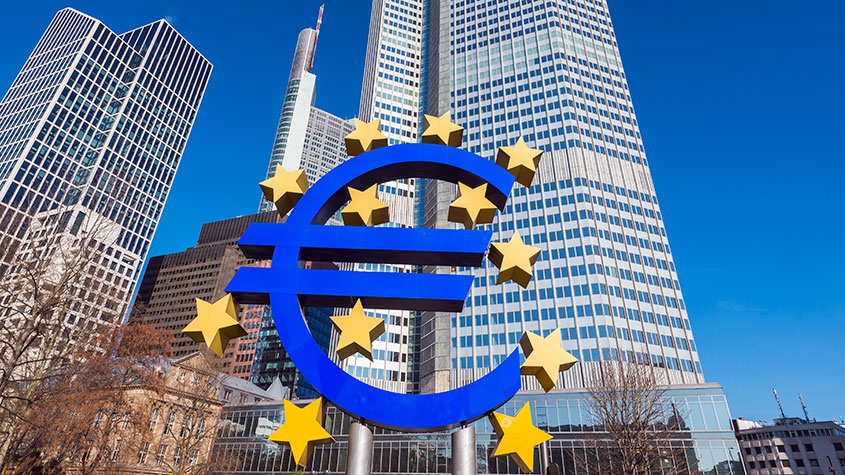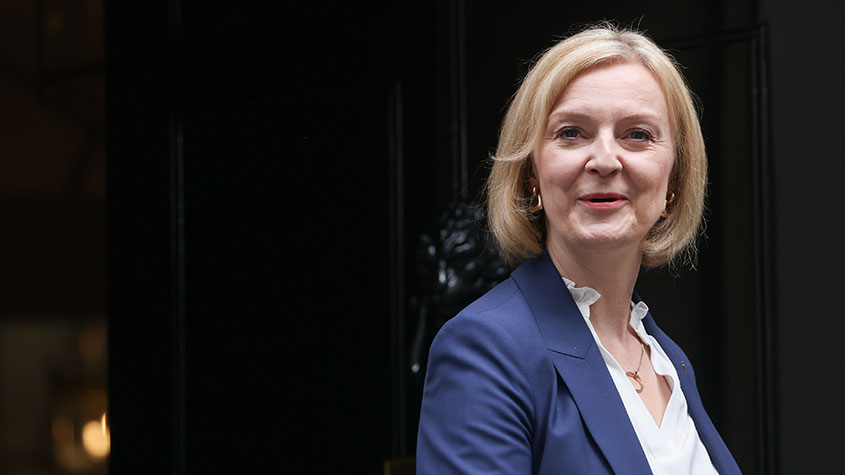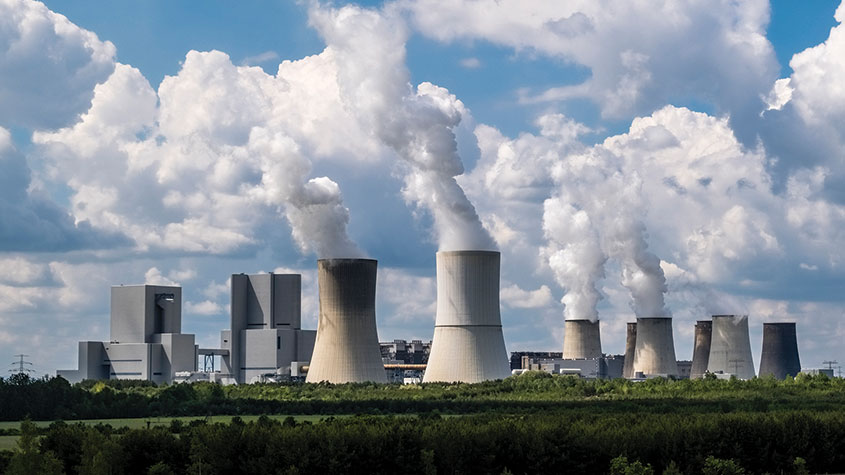Is immigration bad news for the UK labour market?
Most old EU members have chosen not to follow the UK's open borders policy when it comes to new entrants from Eastern Europe. But is opening our doors to economic migrants good or bad news for our labour markets?

Get the latest financial news, insights and expert analysis from our award-winning MoneyWeek team, to help you understand what really matters when it comes to your finances.
You are now subscribed
Your newsletter sign-up was successful
Want to add more newsletters?

Twice daily
MoneyWeek
Get the latest financial news, insights and expert analysis from our award-winning MoneyWeek team, to help you understand what really matters when it comes to your finances.

Four times a week
Look After My Bills
Sign up to our free money-saving newsletter, filled with the latest news and expert advice to help you find the best tips and deals for managing your bills. Start saving today!
Why is immigration in the news?
There are two big stories at the moment. In the US, a campaign against the present immigration laws culminated in over a million pro-immigration marchers taking to the streets in the largest mass protests since the Civil Rights era. In Europe, most of the old EU members decided to extend their ban on allowing workers from the A8 (the eight former Communist states who joined the EU last year) to enter their countries to work. However, Finland, Greece, Portugal and Spain decided to open their labour markets fully, bringing them into line with Ireland, Sweden and the UK. But there's one major difference between the two issues one is about legal immigration and the other illegal.
So who's breaking the law?
MoneyWeek
Subscribe to MoneyWeek today and get your first six magazine issues absolutely FREE

Sign up to Money Morning
Don't miss the latest investment and personal finances news, market analysis, plus money-saving tips with our free twice-daily newsletter
Don't miss the latest investment and personal finances news, market analysis, plus money-saving tips with our free twice-daily newsletter
Lots of US employers and their staff. There are around 11 million illegal workers from Latin America in the US, mostly doing low-paid, unskilled jobs. Last December, anti-immigration politicians in the House of Representatives backed a bill that would criminalise illegal immigrants, make helping them an imprisonable offence, fine employers who hire illegal workers and build a 700-mile fence along the border with Mexico (the more extreme elements would like to fortify the Canadian border as well). However, the bill is extremely unlikely to become law. Pro-immigration politicians, who say these immigrants are vital to the success of the economy, would like to introduce a guest worker programme for 400,000 workers a year and offer current illegal workers amnesty and a path to citizenship if they pay fines and taxes, but this proposal is currently stalled in the Senate.
What's happening in Europe?
When the A8 countries joined the EU, most of the existing members decided they would not open their labour markets to them immediately because of fears they would be flooded with economic migrants. The majority are still worried enough to keep the ban, but many are now easing restrictions for some in-demand skills. While supporters of open labour markets welcomed this, it is not expected to have a major impact on the flow of workers. The UK has had the largest inflow so far 345,000 according to the official (voluntary) registration scheme, although experts regard that as no more than a very rough indication and is expected to remain the most popular. Looking further ahead, Bulgaria and Romania are likely to join the EU in 2007 and the existing members will have to decide whether to allow their citizens to move freely. If the UK sticks with its open borders policy, the Institute for Public Policy Research estimates that it will mean an extra 41,000 Romanians and 15,000 Bulgarian immigrants in the first year.
Why keep them out?
Anti-immigration arguments are largely the same throughout the world. People worry their job prospects will be hurt by new arrivals competing for the same work but willing to accept lower wages. There are often complaints that they are a drain on the economy the usual examples cited are increased social and infrastructure spending that results from the population increase. But it's not just economic: the arrival of a large number of immigrants from an obviously different culture can threaten people's sense of national identity and lead to a rise in social tension.
How do these arguments stack up?
The economic evidence is surprisingly insubstantial either way, largely because the effects are hard to measure although that doesn't stop both sides aggressively overstating their case. However, a recent Ernst & Young study concluded that without the low-cost labour influx, the UK's GDP would be 0.2% lower this year and 0.4% lower in 2007. Almost all research on wages has been done in the US and collectively it suggests no overall impact on wages although the least skilled (high-school drop-outs) may suffer a small decrease. There is solid evidence that immigrants work harder, which makes for a more dynamic economy UK data show that they average lower wages than locals at first, but later overtake them. A US study found that over 30% of technology firms in Silicon Valley were started by entrepreneurs from Chinese or Indian backgrounds. So, on balance, the economy benefits from immigration. But people's fears about the impact on their jobs and social identity are unlikely to be swayed by statistics and politicians will always have a hard job selling immigration to voters hence the slow pace of change in Europe and the US.
What about skilled immigrants?
The benefits of attracting skilled immigrants are not in doubt and almost all rich nations are keen to attract them. Even though France has decided to retain some controls on migrants from eastern Europe, it is also introducing policies to attract more skilled workers from around the world, as have countries such as Australia, Canada, the Netherlands and the UK. One of the few exceptions is the US, where security fears have led it to slash the number of skilled visas granted much to the distress of high-tech employers.
Will immigration fix the pensions crisis?
No. It's a popular fallacy that increased immigration could compensate for the UK's low birth-rate and ageing population, helping to avert the looming pensions-funding crunch. But even if immigration levels were high enough to maintain the current pensioner-worker ratio for now, the problem would just be delayed until those immigrants retire. The only solution to the pensions problem is the politically unpalatable one of making people save more and retire later.
Get the latest financial news, insights and expert analysis from our award-winning MoneyWeek team, to help you understand what really matters when it comes to your finances.

Cris Sholt Heaton is the contributing editor for MoneyWeek.
He is an investment analyst and writer who has been contributing to MoneyWeek since 2006 and was managing editor of the magazine between 2016 and 2018. He is experienced in covering international investing, believing many investors still focus too much on their home markets and that it pays to take advantage of all the opportunities the world offers.
He often writes about Asian equities, international income and global asset allocation.
-
 Early signs of the AI apocalypse?
Early signs of the AI apocalypse?Uncertainty is rife as investors question what the impact of AI will be.
-
 Reach for the stars to boost Britain's space industry
Reach for the stars to boost Britain's space industryopinion We can’t afford to neglect Britain's space industry. Unfortunately, the government is taking completely the wrong approach, says Matthew Lynn
-
 No peace dividend in Trump's Ukraine plan
No peace dividend in Trump's Ukraine planOpinion An end to fighting in Ukraine will hurt defence shares in the short term, but the boom is likely to continue given US isolationism, says Matthew Lynn
-
 Europe’s new single stock market is no panacea
Europe’s new single stock market is no panaceaOpinion It is hard to see how a single European stock exchange will fix anything. Friedrich Merz is trying his hand at a failed strategy, says Matthew Lynn
-
 Britain’s inflation problem
Britain’s inflation problemInflation in the UK appears to be remaining higher for longer when compared with similar rich countries. Why? And when can we expect a return to normal? Simon Wilson reports.
-
 Eurozone inflation hits 10.7% in October
Eurozone inflation hits 10.7% in OctoberNews Inflation across the eurozone hit 10.7% in October. What does it mean for your money?
-
 A forgotten lesson on the dangers of energy price caps
A forgotten lesson on the dangers of energy price capsAnalysis Liz Truss’s proposed energy price cap is an ambitious gamble. But a similar programme in Spain ended up being a fiasco, say Max King and Tom Murley. Here, they explain why Truss’s plan could be doomed to failure.
-
 Don't be scared by economic forecasting
Don't be scared by economic forecastingEditor's letter The Bank of England warned last week the UK will tip into recession this year. But predictions about stockmarkets, earnings or macroeconomic trends can be safely ignored, says Andrew Van Sickle.
-
 The wolf returns to the eurozone’s door
The wolf returns to the eurozone’s doorEditor's letter The eurozone’s intrinsic flaws have been exposed again as investors’ fears about Italy’s ability to pay its debt sends bond yields soaring.
-
 Eurozone economy heads for paralysis
Eurozone economy heads for paralysisNews Record high energy prices, the threat of recession in Germany and squabbling in Italy's government has left the eurozone fighting fires on all fronts.